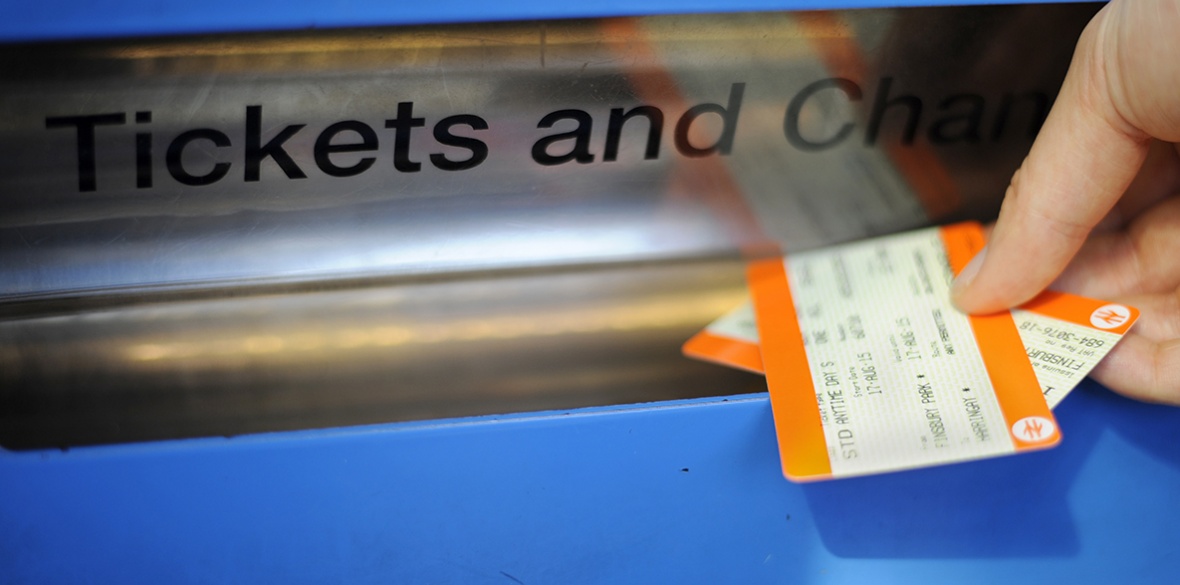This is the last article you can read this month
You can read more article this month
You can read more articles this month
Sorry your limit is up for this month
Reset on:
Please help support the Morning Star by subscribing here
TORY ministers must freeze rail fares to tempt commuters hit by the worst cost-of-living crisis in decades back onto trains, transport unions demanded today.
The calls followed the government’s confirmation that it would not raise ticket prices in England above this July’s 9 per cent retail prices index rate of inflation when the next increase is due in March 2024.
Although means that next year’s rise is likely to be below inflation, ministers failed to guarantee this and their commitment will not cut the cost of already high fares, merely put a slight brake on their rate of increase.
Regulated fares cover almost half of all tickets, including commuters’ season tickets, some off-peak return fares on long-distance journeys and anytime tickets around major cities.
Chief secretary to the Treasury John Glen claimed to be working with Transport Secretary Mark Harper on “what mechanism to use” to try to keep ticket price jumps below inflation.
However, speaking to Sky News, he warned of “tough decisions” — usually Tory code for more austerity — adding that ministers would prioritise the “economy as a whole.”
TSSA interim general secretary Peter Pendle said: “While not increasing fares by the sky-high rate of inflation is one thing and welcome in itself, the government really must go much further.
“It’s notable that the Tories have not yet said what the rise in fares will be, only that it will happen. This is the wrong approach.
“It would be much better to bring in a fares freeze which would encourage people back onto our rail network and leave more money in the pockets of workers, who badly need some good news after the government recklessly crashed the economy.”
Unions and campaigners have repeatedly stressed the benefits of cheaper public transport, which include more disposable income for millions of key workers and less private car use, cutting congestion, pollution and planet-warming carbon dioxide emissions.
The Department for Transport used Britain’s average earnings growth of 5.9 per cent in the three months to July 2022 to determine this year’s increase in fares.
The figure for July 2023 will be published on September 12.
The devolved Scottish and Welsh governments have yet to announce their rail fares plans for next year.










